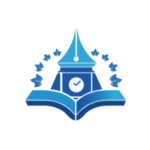Being accepted by Stanford or an Ivy League University is becoming more and more difficult every year. Admission rates at these top colleges have collapsed by on average 50%. Watch the webinar to learn how to navigate the Stanford and Ivy League admissions process, position your application, and market your candidacy.
Read below for an abbreviated transcript, and watch the previous webinar on the same topic at the bottom of the page for even more context on the topic.
Visit our Admissions Consulting YouTube Channel
How to Gain Admission to Stanford and Ivy League Universities
Welcome to our guide on gaining admission to Stanford and Ivy League universities. I’m Dan Lee, co-founder and senior admissions consultant at Solomon Admissions Consulting. Our firm has the largest college admissions consulting team in the industry, with over 100 former admissions officers using a team-based approach to help students gain admission to the best colleges.
Why Care About Top Universities?
Harvard, Yale, Princeton, and Stanford reject over 60% of students with a perfect 4.0 GPA and a 1600 SAT score. Stanford rejects 70% of students with perfect SAT scores. Being numerically perfect and participating in numerous extracurricular activities is necessary but not sufficient to gain admission to these top schools.
Acceptance Rates and Our Success
Acceptance rates at top universities have significantly decreased over the years. For example, Columbia University’s acceptance rate dropped from 12% in 2005 to 4% last year. Meanwhile, 26.5% of Solomon Admissions clients who applied to Columbia were admitted. At Stanford, the acceptance rate dropped from 13.3% to 3.9%, with 28.8% of our clients gaining admission. Working with us can significantly improve your chances of acceptance.
How Elite Colleges Evaluate Applicants
Elite colleges evaluate both academic and personal profile components. Approximately 50% of your application is based on SAT/ACT scores, grades, class rank, and course difficulty. The remaining 50% includes your personal statement, supplemental essays, activity sheet, interviews, and recommendation letters. We help you improve the latter 50%.
The Importance of Standardized Testing
Standardized testing is not truly optional if you want to be competitive. Top colleges that initially went test-optional are now requiring SAT and ACT scores again. Strong test scores are essential, especially if your GPA is below the 25th percentile.
Stanford’s Evaluation Process
Stanford recalculates your GPA, focusing on grades from 10th and 11th grade only. They look at academic core courses and use flat grading to adjust your GPA. Stanford assigns six separate ratings on a one-to-five scale, with intellectual vitality being the most important rating.
Profiles of Admitted and Rejected Stanford Applicants
Rejected applicants often have an academic rating of two to three, a testing rating of one to two, and lower ratings in extracurricular activities and intellectual vitality. Admitted applicants typically have higher ratings in these areas and are very focused on one or two extracurricular activities.
Differences Between Stanford and the Ivy League
Stanford tends to admit the most compelling applicants rather than the most qualified on paper. Stanford weighs the SAT less and the supplemental essays more heavily than the Ivies. They also favor public school students over private school students.
How Ivy League Schools Evaluate Applicants
Using Dartmouth College as an example, Ivy League schools assign academic and extracurricular/personal ratings on a one-to-five scale. An academic rating of five out of five includes being in the top one to two percent of your high school class, having taken all available AP courses, scoring in the 99th percentile on the SAT/ACT, and having glowing recommendation letters.
The Importance of Strategic Positioning
Strategic positioning is key to standing out in the college admissions process. Top colleges look for angular students who are focused on one or two areas. Your personal statement should reflect a singular passion or intellectual pursuit.
Case Studies
- Undeclared Major Applicant: Helped a student discover an interest in linguistics through theater, leading to admissions at the University of Chicago, Georgetown, and NYU.
- Recruited Athlete: Positioned a student as a physics major instead of focusing on sports, leading to admission at the College of William and Mary.
- No Extracurricular Activities: Positioned a student as an art history major based on her interest in visiting art galleries, leading to admission at USC and NYU.
- Pre-Med Applicant: Positioned a student as an art history major instead of focusing on medicine, leading to admission at Stanford.
- Computer Science/Engineering Applicant: Positioned a student as a computational linguistics major, leading to admission at Harvard and Cornell.
- Business/Economics Applicant: Positioned a student for the M&T program at Penn by showcasing interdisciplinary and entrepreneurial qualities, leading to admission.
- Combined BS/MD Applicant: Used a bifurcated strategy to position a student as an environmental engineering major and a future rural doctor, leading to admission at PLME and other top schools.
The Solomon Research Scholars Program
The Solomon Research Scholars Program is a 10-week online program where students write a 15-page research paper on a topic of interest, guided by PhD candidates or students at top universities. This program increases your intellectual vitality rating and introduces you to research, preparing you for undergraduate research.
Conclusion
At Solomon Admissions Consulting, we have the largest team of former admissions officers in the industry. We use a team-based approach to help students from as early as 6th or 7th grade up to junior or senior year of high school. Set up a free 20-minute consultation by emailing info@solomonadmissions.com or calling us. You’ll receive valuable feedback on your profile, even if you decide not to work with us.
Here is a previous recording of our webinar on the same topic, for additional context:
Introduction to College Admissions Webinar
Good afternoon, everyone. Thank you for joining us today for our complimentary webinar, “How to Gain Admission to Stanford and Ivy League Universities,” presented by Solomon Admissions Consulting. My background includes significant experience in college admissions, including as the former Director of Admissions at Cornell University. Today, I’ll provide insights into the admissions strategies for top-tier universities, which have increasingly selective admission rates.
Understanding the Competitive Admissions Landscape
This webinar, while focused on Stanford and Ivy League schools, is broadly applicable to any top university facing ultra-competitive admissions scenarios. Admission rates at these prestigious institutions are often below 10%, with some even under 5%. We at Solomon Admissions leverage our extensive experience—having worked across top 20 institutions—to guide students and families through this challenging landscape. Our team, comprised of over a hundred consultants, brings a depth of knowledge from having been directly involved in the admissions processes at these competitive schools.
The Importance of Staying Current in Admissions Strategies
The landscape of college admissions is ever-evolving. Rates of admission continue to decrease, reflecting heightened competition. For example, when I began at Cornell in 2004, the admission rate was 23%, which has since dropped to below 9%. Factors such as the Common Application’s ease of use and test-optional policies have driven up application numbers significantly. Moreover, recent changes like the Supreme Court decision on race in admissions have also led to increased application volumes.
Strategic Admissions Consulting
At Solomon Admissions, we pride ourselves on understanding the nuances of what different top universities are looking for in their applicants. Our approach is comprehensive; we stay updated through regular professional development and by maintaining strong connections within the admissions community. This allows us to strategically guide our students through their applications, ensuring they present themselves in the most favorable light possible.
Quantitative vs. Qualitative Evaluation
Colleges evaluate candidates both quantitatively and qualitatively. While stellar grades and perfect test scores might get a student initially noticed, these alone are insufficient for admission. For example, schools like Harvard, Yale, Princeton, and Stanford reject a significant number of applicants even with perfect scores. Thus, the other half of the application—comprising essays, extracurricular involvement, and recommendations—plays a crucial role.
Admissions Trends and Insights
We closely monitor trends in college admissions, helping our students adapt their strategies accordingly. For instance, despite some schools maintaining a test-optional stance, many are reverting to requiring standardized tests. We advise our students to aim for scores within the top 25th percentile of the admitted cohort to strengthen their applications.
Application Review Process
The review process at highly selective schools like Stanford involves a detailed evaluation of a student’s academic rigor, extracurricular depth, intellectual vitality, and personal qualities. Stanford, for example, assigns ratings in six distinct categories, which significantly influence admission decisions. We help our students understand these metrics early in their consultation process, enhancing their potential ratings through targeted activities and thoughtful application crafting.
Conclusion and Q&A
In conclusion, gaining admission to top universities requires more than just excellent academics; it requires a strategic and well-rounded application. At Solomon Admissions, we equip our students with the insights and guidance necessary to navigate this complex landscape successfully. Now, I’d be happy to take any questions you might have about college admissions and how we can help you or your student achieve your educational goals.

All of our blog posts are written by Former College Admission Officers who serve as members of our admission consultant team.



